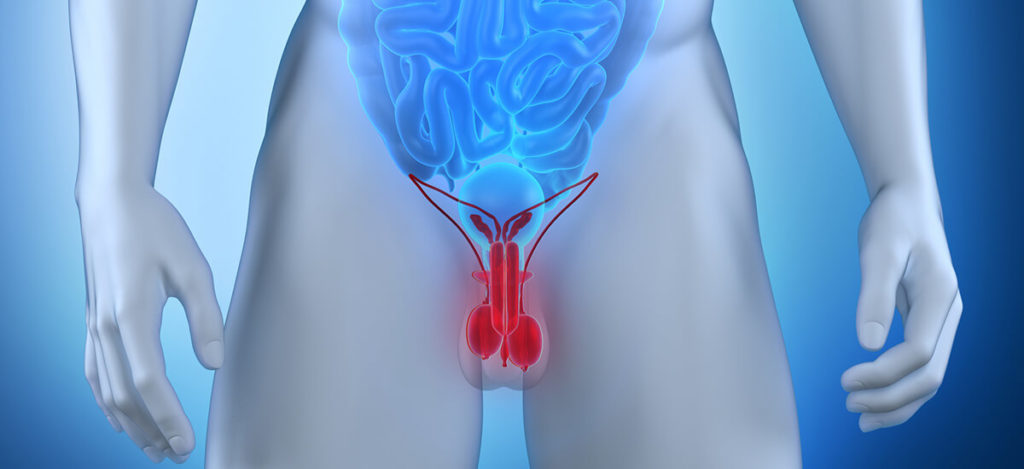fThis is a multi-centre randomised trial comparing long course (LC) preoperative chemoradiation with short course (SC) preoperative radiotherapy for patients with localised T3 rectal cancer.
Official Title
A Randomised Trial of Preoperative Radiotherapy for Stage T3 Adenocarcinoma of Rectum
Conditions
Adenocarcinoma of Rectum
Study Type
Interventional
Study Design
Treatment, Randomized, Open Label, Active Control, Parallel Assignment, Efficacy Study
Further Details
Primary Outcome Measures:
- Local recurrence [Time Frame: Main analysis will occur at minimum 3 years follow up of all patients. (After 6 years since start of trial)]
Secondary Outcome Measures:
- Survival [Time Frame: Main analysis will occur at minimum 3 years follow up of all patients. (After 6 years since start of trial)]
- Toxicity [Time Frame: Interim analyses will occur annually.]
- Abdominoperineal resection rate. This is defined as the proportion of all patients in any arm who undergo operation by abdominalperineal resection. [Time Frame: Main analysis will occur at minimum 3 years follow up of all patients. (After 6 years since start of trial)]
- Quality of life [Time Frame: Main analysis will occur at minimum 3 years follow up of all patients. (After 6 years since start of trial)]
Study Start
July 2001; Study completion: June 2009
Eligibility & Criteria
Official Title
A Randomised Trial of Preoperative Radiotherapy for Stage T3 Adenocarcinoma of Rectum
Conditions
Adenocarcinoma of Rectum
Study Type
Interventional
Study Design
Treatment, Randomized, Open Label, Active Control, Parallel Assignment, Efficacy Study
Further Details
Primary Outcome Measures:
- Local recurrence [Time Frame: Main analysis will occur at minimum 3 years follow up of all patients. (After 6 years since start of trial)]
Secondary Outcome Measures:
- Survival [Time Frame: Main analysis will occur at minimum 3 years follow up of all patients. (After 6 years since start of trial)]
- Toxicity [Time Frame: Interim analyses will occur annually.]
- Abdominoperineal resection rate. This is defined as the proportion of all patients in any arm who undergo operation by abdominalperineal resection. [Time Frame: Main analysis will occur at minimum 3 years follow up of all patients. (After 6 years since start of trial)]
- Quality of life [Time Frame: Main analysis will occur at minimum 3 years follow up of all patients. (After 6 years since start of trial)]
Study Start
July 2001; Study completion: June 2009
Eligibility & Criteria
Official Title
A Randomised Trial of Preoperative Radiotherapy for Stage T3 Adenocarcinoma of Rectum
Conditions
Adenocarcinoma of Rectum
Study Type
Interventional
Study Design
Treatment, Randomized, Open Label, Active Control, Parallel Assignment, Efficacy Study
Further Details
Primary Outcome Measures:
- Local recurrence [Time Frame: Main analysis will occur at minimum 3 years follow up of all patients. (After 6 years since start of trial)]
Secondary Outcome Measures:
- Survival [Time Frame: Main analysis will occur at minimum 3 years follow up of all patients. (After 6 years since start of trial)]
- Toxicity [Time Frame: Interim analyses will occur annually.]
- Abdominoperineal resection rate. This is defined as the proportion of all patients in any arm who undergo operation by abdominalperineal resection. [Time Frame: Main analysis will occur at minimum 3 years follow up of all patients. (After 6 years since start of trial)]
- Quality of life [Time Frame: Main analysis will occur at minimum 3 years follow up of all patients. (After 6 years since start of trial)]
Study Start
July 2001; Study completion: June 2009
Eligibility & Criteria
Official Title
A Randomised Trial of Preoperative Radiotherapy for Stage T3 Adenocarcinoma of Rectum
Conditions
Adenocarcinoma of Rectum
Study Type
Interventional
Study Design
Treatment, Randomized, Open Label, Active Control, Parallel Assignment, Efficacy Study
Further Details
Primary Outcome Measures:
- Local recurrence [Time Frame: Main analysis will occur at minimum 3 years follow up of all patients. (After 6 years since start of trial)]
Secondary Outcome Measures:
- Survival [Time Frame: Main analysis will occur at minimum 3 years follow up of all patients. (After 6 years since start of trial)]
- Toxicity [Time Frame: Interim analyses will occur annually.]
- Abdominoperineal resection rate. This is defined as the proportion of all patients in any arm who undergo operation by abdominalperineal resection. [Time Frame: Main analysis will occur at minimum 3 years follow up of all patients. (After 6 years since start of trial)]
- Quality of life [Time Frame: Main analysis will occur at minimum 3 years follow up of all patients. (After 6 years since start of trial)]
Study Start
July 2001; Study completion: June 2009
Eligibility & Criteria
- Ages Eligible for Study: 18 Years and above
- Genders Eligible for Study: Both
Inclusion Criteria:
- Pathologically documented and clinically resectable adenocarcinoma of the rectum.
- The patient must be considered by the surgeon to be suitable for a curative resection.
- The patient must be considered by the radiation oncologist to have no contraindication to pre-operative radiotherapy.
- Clinical T3 stage tumour on endorectal ultrasound or MRI. When endorectal ultrasound cannot be performed satisfactorily due to a technical reason, such as stenosis or proximity of the tumour, and MRI is not available, infiltration of perirectal fat on CT scan is also acceptable.
- Tumour with lower border within 12 cm from anal verge on rigid sigmoidoscopy.
- ECOG performance status 0, 1 or 2.
- Adequate bone marrow function with neutrophil count at least 1.5 x 109/L and platelet count at least 100 x 109/L.
- Adequate liver function with bilirubin and alanine aminotransferase (ALT) <= 1.5 times the upper limit of normal.
- Adequate renal function with serum creatinine <= 1.5 times the upper limit of normal.
- Accessibility for treatment and follow-up.
- Written informed consent.
Exclusion Criteria:
- Evidence of distant metastases.
- Recurrent rectal cancer.
- Unstable cardiac disease or clinically significant active infection.
- Other cancer in the last 5 years except treated non-melanoma skin cancer or carcinoma in situ of the cervix.
- Pregnant or lactating females or female patients of childbearing potential who have not been surgically sterilized or are without adequate contraceptive measures.
- Contraindication to insertion of a suitable indwelling venous catheter e.g. implantable central venous device (infuse-a-port), HICKMAN® catheter1 or peripherally inserted central catheter.
- Prior pelvic or abdominal radiotherapy.
1 HICKMAN is a registered trade mark of C.R. Bard Inc
Total Enrolment
325
Contact Details
Australian Capital Territory
- The Canberra Hospital, Garran, Australian Capital Territory, 2605, Australia
New South Wales
- Liverpool Hospital, Liverpool, New South Wales, 1871, Australia
- Newcastle Mater Misericordiae Hospital, Newcastle, New South Wales, 2310, Australia
- Prince of Wales Hospital, Randwick, New South Wales, 2031, Australia
- Royal North Shore Hospital, Sydney, New South Wales, 2069, Australia
- Royal Prince Alfred Hospital, Camperdown, New South Wales, 2050, Australia
- Westmead Hospital, Wentworthville, New South Wales, 2145, Australia
- Macarthur Cancer Therapy Centre, Campbelltown, New South Wales, 2560, Australia
- Nepean Cancer Care Centre, Penrith, New South Wales, 2751, Australia
- Riverina Cancer Care Centre, Wagga Wagga, New South Wales, 2650, Australia
Queensland
- East Coast Cancer Centre, Tugun, Queensland, 4224, Australia
- Mater QRI, South Brisbane, Queensland, 4101, Australia
- Princess Alexandra Hospital, Woolloongabba, Queensland, 4102, Australia
- Royal Brisbane Hospital, Herston, Queensland, 4029, Australia
- North Queensland Oncology Service, Townsville, Queensland, 4810, Australia
- Mater Private Hospital, Brisbane, Queensland, Australia
South Australia
- Royal Adelaide Hospital, Adelaide, South Australia, 5000, Australia
Tasmania
- Launceston General Hospital, Launceston, Tasmania, 7250, Australia
Victoria
- Peter MacCallum Cancer Centre, Melbourne, Victoria, 3002, Australia
- Andrew Love Cancer Centre, Geelong Hospital, Geelong, Victoria, 3220, Australia
- Murray Valley Private Hospital, Wodonga, Victoria, 3690, Australia
- Alfred Hospital, Prahran, Victoria, 3181, Australia
- Box Hill Hospital, Box Hill, Victoria, Australia
- Frankston Hospital, Frankston, Victoria, Australia
- Monash Medical Centre, East Bentleigh, Victoria, 3165, Australia
- Peter MacCallum Cancer Centre, Bendigo, Victoria, Australia
- Peter MacCallum Cancer Centre, East Melbourne, Victoria, 3002, Australia
- St Vincents Melbourne, Fitzroy, Victoria, Australia
- Western Hospital, Footscray, Victoria, Australia
Western Australia
- Sir Charles Gairdner Hospital, Nedlands, Western Australia, 6009, Australia
- Royal Perth Hospital, Perth, Western Australia, 6000, Australia
All content and media on the HealthEngine Blog is created and published online for informational purposes only. It is not intended to be a substitute for professional medical advice and should not be relied on as health or personal advice. Always seek the guidance of your doctor or other qualified health professional with any questions you may have regarding your health or a medical condition. Never disregard the advice of a medical professional, or delay in seeking it because of something you have read on this Website. If you think you may have a medical emergency, call your doctor, go to the nearest hospital emergency department, or call the emergency services immediately.







